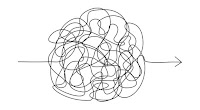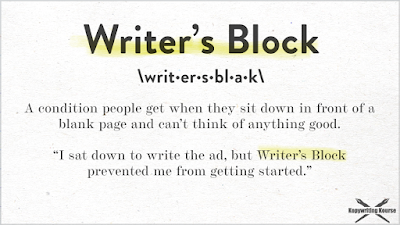MEETING DEADLINES IS A KEY PART OF RUNNING A SUCCESSFUL BUSINESS. IF YOU STRUGGLE WITH COMPLETING PROJECTS ON TIME, THESE SIX (6) STRATEGIES ARE SURE TO HELP YOU ON YOUR WAY!
By: Kel Amstutz
Monday, May 11, 2020
Sometimes I have to remind myself of a quote from a LEGEND of Productivity and Personal Leadership when I have a project with a deadline. Napoleon Hill said,
"A goal is a dream with a deadline."
 I think of this quote anytime anyone says anything about a deadline... and my inner procrastinator's instinct starts to kick in to rebel or negotiate a later deadline... even before I begin on the said project.
I think of this quote anytime anyone says anything about a deadline... and my inner procrastinator's instinct starts to kick in to rebel or negotiate a later deadline... even before I begin on the said project. But... due in part to the fact that I watch entirely too much T.V. the filter between brain and mouth reminds me about deadlines attributed to Robert Herjavec, from ABC's Shark Tank. He said,
"A goal without a deadline is just a dream."
 Two quotes... about dreams and deadlines... and the kind of do work together...
Two quotes... about dreams and deadlines... and the kind of do work together...These words seem to shift me productivity into GO-MODE and remind me that while deadlines can be stressful (I mean, that does go without saying... right?), I can achieve a lot more with deadlines than without them.
There is a reason why deadlines are IMPORTANT:
- Deadlines help our minds focus. Without them, it would be entirely too easy to lose track of time, give in to distractions and wander down the myriad of rabbit holds offered by the endless internet before us.
Over the years, I have found six awesome strategies that have helped me keep on task and meet my deadlines...
STEP 1: Set REALISTIC Deadlines
I know what you are thinking... really? It seems too obvious. But, you would be surprised at how often people will set a deadline without thinking through how long it will really take for them to complete the project... and don't get me started on reviewing things that are already on the table to get done.
It is well-documented that we (both individuals and groups) predictably underestimate the time necessary to complete projects when we are setting our deadlines.
So... what do we do about this?
To combat this tendency, follow these steps:
- Consider past projects that are of a similar nature and scope. How long did they take you? The answer to this question will give you a general idea of what you can expect.
- Break down the project into the logical steps that you will go through and assign a time to each of those steps. You will most likely come up with a time frame that is similar to what you did in step 1, but now you will have some milestones to keep you on track.
- Consider what you will need from others. Have you worked with these people before? How quickly do they usually deliver? Make sure that you are factoring in these small details into your timeline.
- And finally, take the numbers you come up with and multiply them by at least two (2). Do this for one of two reasons. First, unexpected things WILL come up. And second, it is very likely that your memory of past projects is not perfect, so this extra time will insulate you.
This brings me to my second strategy...
STEP 2: Have a Written Plan to Meet your Deadline
If you start to think of coming to the end of a project like a journey... your very first step should be to pick your destination.
This is the DEADLINE.
The next step is to plan you route.
By designing your written plan, you get your brain thinking about the series of tasks that you need to take to complete the project and to ultimately meet your deadline. Now, your brain secretly DOES NOT like to leave anything unfinished, so this step really gets your brain set on completing those tasks, even before you start to carry them out.
In other words, writing out your project plan prepares your mind for the tasks required to complete it and meet the deadline.
Additionally, writing down your plan (and deadline) forces YOU to look at the specifics and to make concrete decisions on each of the steps necessary and know when you can tackle each of them.
 This strategy of having a written plan for completing a project is the
This strategy of having a written plan for completing a project is the SECRET SAUCE of meeting deadlines.
I have taken a few coaching courses along my own journey and committing to the plans (or goals) in your writing is so very important.... because it:
- Motivates you.
- Forces YOU to filter other opportunities and obligations.
- Provides clarity.
- Forces you to see - and celebrate - progress.
- Helps you focus on the goal (rather than the push back).
This strategy is largely about PERSONAL ACCOUNTABILITY. Having a set plan with internal deadlines WILL help you to AVOID the dreaded procrastination.
That being said, it will also help you be accountable to the outside forces when you are working on a deadline. Many times this is built-in, because the deadline is set by an editor, copy chief, or anyone who is higher up on the pay scale. But, being held accountable by someone else definitely keeps us on a deadlines... right?
So, moving on to the next strategy...
STEP 3: Share with Your Team
Accountability works way better when others are involved. I mean, most of the people that I know... if they are being honest... are NOT the best at holding themselves to a task...
But, most people I know do not like to look like they are scatterbrained... or a slacker... in front of people that they care about.
When possible, tell other people about your deadline. And not just the BIG ONE at the end, but the significant milestones you hit along the way.

Within your personal life, you could tell your partner/spouse, roommate or a close friend. Ask them to check in with you periodically to see how your project is going. Your desire to be able to answer them in a way that makes you look good will help keep you motivated and on task.
Professionally, share those milestones that you have set with your client. And then, send them a weekly email to update them on your progress. Believe me, this one goes a long way... and after you have sent one "nothing to report" message, you will get back on task real quick!
What about Mastermind or Accountability groups? I personally love this format, letting other like-minded people come together to lift one another up. They are so great for holding your accountable.
A really big aspect of accountability is building rewards and detriments...
If you hit a milestone, have a specific celebration in mind. It could be small- like an afternoon movie... or, when you complete a major project, it might be bigger. A few of my bigger rewards have been buying an expensive item... or going out to dinner at a fancy restaurant.
A quick example of a personal accountability stick - or a detriment- that I have set for not achieving a goal is donating a set amount of money to a local charity. If you want to make this effective, donate to a political candidate... you will NEVER stop getting mail.
However, the simple fact remains... the most IMPORTANT accountability and reward tool for meeting deadlines is...
Y O U .
If you don't set deadlines.... or take deadlines seriously... (and this is across the board... deadlines set by YOU... set by an editor... copy chief... or supervisor), then NO AMOUNT of internal or external accountability - or planning- will matter.
To make that happen, you have to...
STEP 4: Do The Work.
Obviously... right. But, as world-class procrastinators will attest, this is sometimes the hardest part.
You can draw out a deadline and set an ideal deadline... you can design a perfectly written plan to meet that deadline... you can get the right resources and support... but, if you don't start the work, you are NOT going to meet the deadline.
Don't wait for tomorrow or next week.... Don't wait for later today... Nope...
START NOW
Even though you are not going to finish today, you just need to START.
By "today," I mean whatever day you're given the project. You've set the deadline, designed your plan to achieve it, and even set up your accountability network...
So, DIG IN! Start doing the actual project. Aim to complete at least your first small task. Your brain is tuned in to your project and its deadline.... so now is the perfect time.
But... doing the WORK also means AVOIDING distractions during the time you have set aside to work on this project.
I get it. Distractions happen. The competition for your time and attention is fierce and it comes from MANY different sources. You have to take a hard stance against them and maintain complete focus on the task at hand.
So, close your browser... this will allow you to avoid internet surfing.... Close the office door so you have peace and quiet. Set your phone to "Do Not Disturb," so you aren't tempted to answer texts or check in on your notifications.
It's really that simple - but, putting it all into action might not be. Focus can take practice, and the best time to start developing your ability to focus is RIGHT NOW.
Now, you might be wondering what else I could say. These four strategies might be enough to meet your deadline... and sure, they might be.... BUT, I have found two additional strategies that are also very helpful...
STEP 5: Don't Add Extra Work to the Deadline
OK.... Projects and Requirements change... I totally get that.
However, avoid adding to your work when you already have an assigned and defined project, especially if a negotiated deadline has already been established and set. If your client needs you to do extra work, well, OK, but you will need to adjust the deadline.
I always make it clear with the clients I am under a deadline with:
- If the project requirements change - expanding - and those changes must be incorporated into the current project and its deadline - the deadline will require adjustment in order to account for the additional work.
And... one final bonus strategy....
STEP 6: Don't Be Afraid to Ship in "Beta"
This strategy comes from the land of software development. Software is built and tested internally with a development team, who try to test and grab all the bugs in the "alpha" phase of the project.
In regards to copywriting, I compare this to a first complete draft of a piece. You have worked through the entire blog post, editorial article, e-newsletter, email series, landing page, video sales letter, or long-form sales letter. You've outlined the entire piece, you have all the research compiled and organized, and you have a rough draft of all the necessary pieces laid out in the correct order.
Then... "beta" is the NEXT PHASE.
In the software development world, this means the software is complete and has all the features. This is the version that companies often use in public demonstrations, and sometimes it's released to a limited group for real-world testing. It's complete, but ... it's likely to still have some bugs.
In copywriting, this means you have ensured all the major components of this piece of copy or content are present... you have given it the once over and ensured that style and voice are used correctly. It has survived your internal process of beating it up.
Your next step is to get some further input. And, it does not have to be "perfect" to take this next step. That need for perfection is where so many writers get HUNG UP.
I have no idea who said it first, but I have heard the saying "Done is better than perfect."
This is a hard one to swallow, especially for me... O.C.D. and all.
But, getting it out the door by the deadline is better than perfect.
If you don't get the project done on time, you are risking so much... missed opportunities... even missing the opportunity to make the copy better.
Let me explain this a little further...

You can do personal review and tweak your work ... forever... and you still might never get it "just right". Why? Well, you need editor feedback to make it better.
See... we need people who AREN'T US, who don't have our set of assumptions, who don't have our worldviews, who don't have our bias towards the copy or content.... to actually review it and give us a sense of what's working... and what isn't.
You can not be a proofreader and editor at the same time. These are just simple facts.
Remember, as a copywriter or a content developer, you are responsible for RESULTS. You can NOT be afraid to put yourself on the hook. You can deliver. You need to deliver.
Embrace your deadlines; they are not your enemy... I swear.
Instead... they are really the BEST FRIEND a writer can have. Deadlines create a sense of urgency within us. They make sure that we FINISH what we start and that we continue to move forward and grow... and... drum-roll please.... because this is the KICKER..
They ultimately help us build the life we want... The Writer's Life....

Don't take my word for it. Use these six strategies for yourself. Don't forge to share your experiences or tips that work for you in your journey. We love feedback!









































